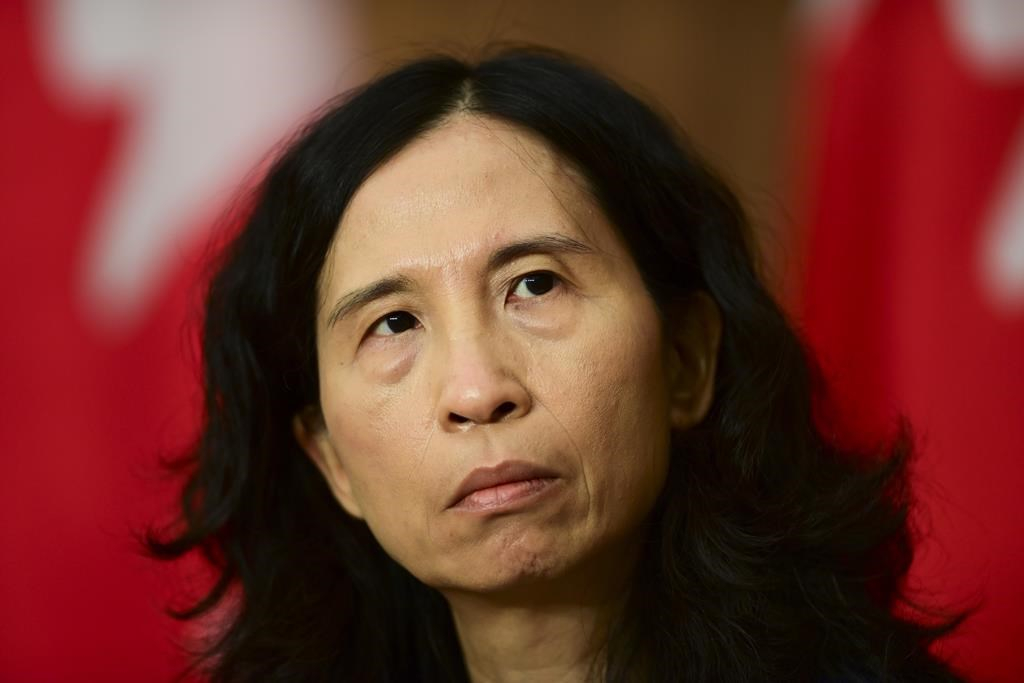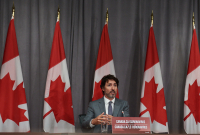Support strong Canadian climate journalism for 2025
Canada's chief public health officer urged residents to continue making a "collective effort" to tackle the COVID-19 pandemic on Saturday as parts of the country braced for new rounds of restrictions meant to curb the spread of the virus.
Dr. Theresa Tam issued a statement acknowledging that confusion over appropriate public health measures is understandable in light of the fact that the pandemic is playing out differently across different provinces and territories.
But she stressed that Canadians must "keep our number of in-person close contacts low" and adhere to public health practices.
"There are no quick fixes and COVID-19 is not going away, so public health is focused on making the response sustainable through to the end of the pandemic, balancing the health, social and economic consequences," Tam said Saturday in a news release.
"What is certain, is that our response requires a collective effort. Everyone's actions matter."
Canada continued climbing toward the 200,000 mark for COVID-19 cases, with 196,324 confirmed cases reported Saturday across the country.
Canada also recorded 9,746 deaths related to the virus.
On Friday the Manitoba government announced it would impose increased COVID-19 restrictions in Winnipeg on Monday, while the Ontario government plans to do the same in York Region, north of Toronto.
Restrictions limiting visitors at long-term care homes in the region also took effect as of Saturday, the Ontario government said.
Manitoba reported 85 new COVID-19 cases on Saturday, for a total of 3,258, with 1,572 considered recovered and 38 deaths.
With cases spiking there, the province is imposing new restrictions in the greater Winnipeg area, starting Monday and lasting for two weeks.
The new rules in Winnipeg limit gatherings of people to five, and state that beverage rooms, bingo halls and casinos must close. Meanwhile, restaurants, lounges, retail stores, museums and libraries will be limited to half capacity.
In Ontario, which reported 805 new cases of COVID-19 and 10 new deaths related to the virus Saturday, another Toronto-area public health unit has imposed tighter restrictions on local long-term care homes.
The new ban on all but essential visitors and caregivers is in effect in York Region, which is facing an upward trend in COVID-19 cases.
Starting Monday, York Region will also join the province's other three COVID-19 hot spots in moving back to a modified Stage 2 of pandemic protocol for 28 days.
Toronto, Peel Region and Ottawa were placed under similar restrictions amid rising cases a week ago.
The modified Stage 2 includes the closure of gyms and movie theatres, a ban on indoor dining in restaurants or bars, and a cap on public gatherings at 10 people indoors and 25 people outdoors.
Ontario now has a total of 63,713 cases of COVID-19, including 54,686 that are considered resolved and 3,041 deaths.
Quebec continued to post the nighest number of new COVID-19 diagnoses in the country, reporting 1,279 new cases on Saturday.
With different approaches across the country while schools and some businesses remain open, the situation is "complicated" and challenging for individuals, families and public health authorities, Tam said.
But we need to remember that every person we encounter "brings with them a whole network of contacts," she added.
"So, as much as you can, I urge you to reduce encounters with people outside of your consistent, trusted close contacts," Tam said.
"I especially urge you to avoid these encounters in crowded and closed settings with limited ventilation. Keeping apart is difficult, but it is what will make us stronger, more resilient and better able to sustain public health efforts through the fall and winter."
This report by The Canadian Press was first published Oct. 17, 2020.





Comments